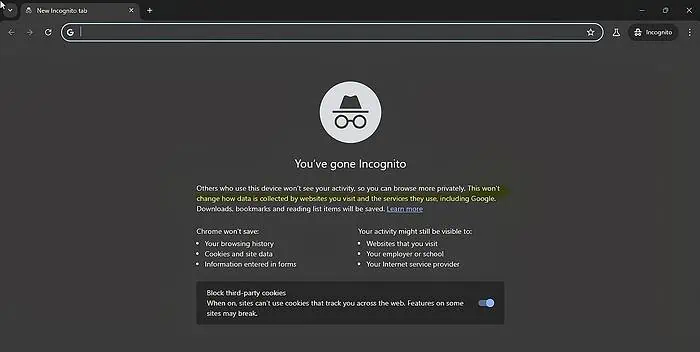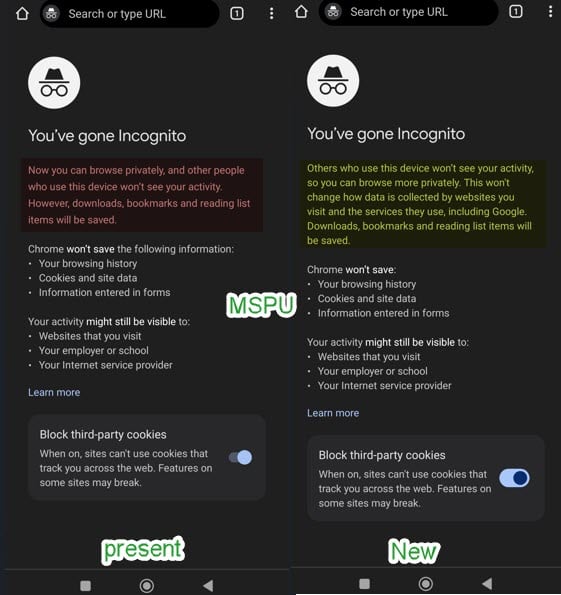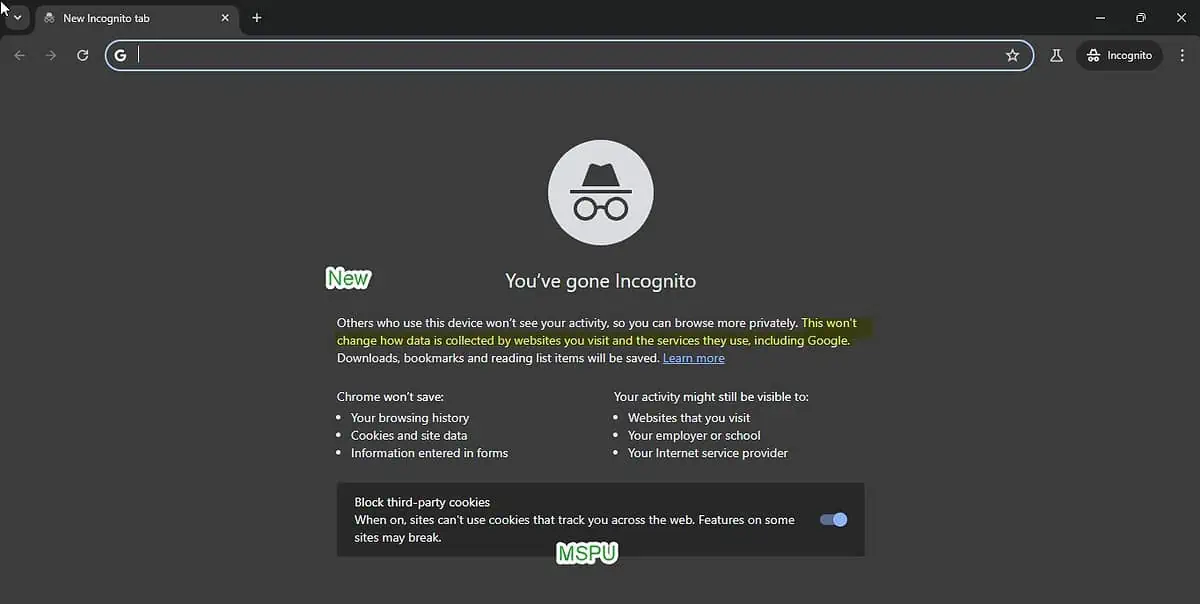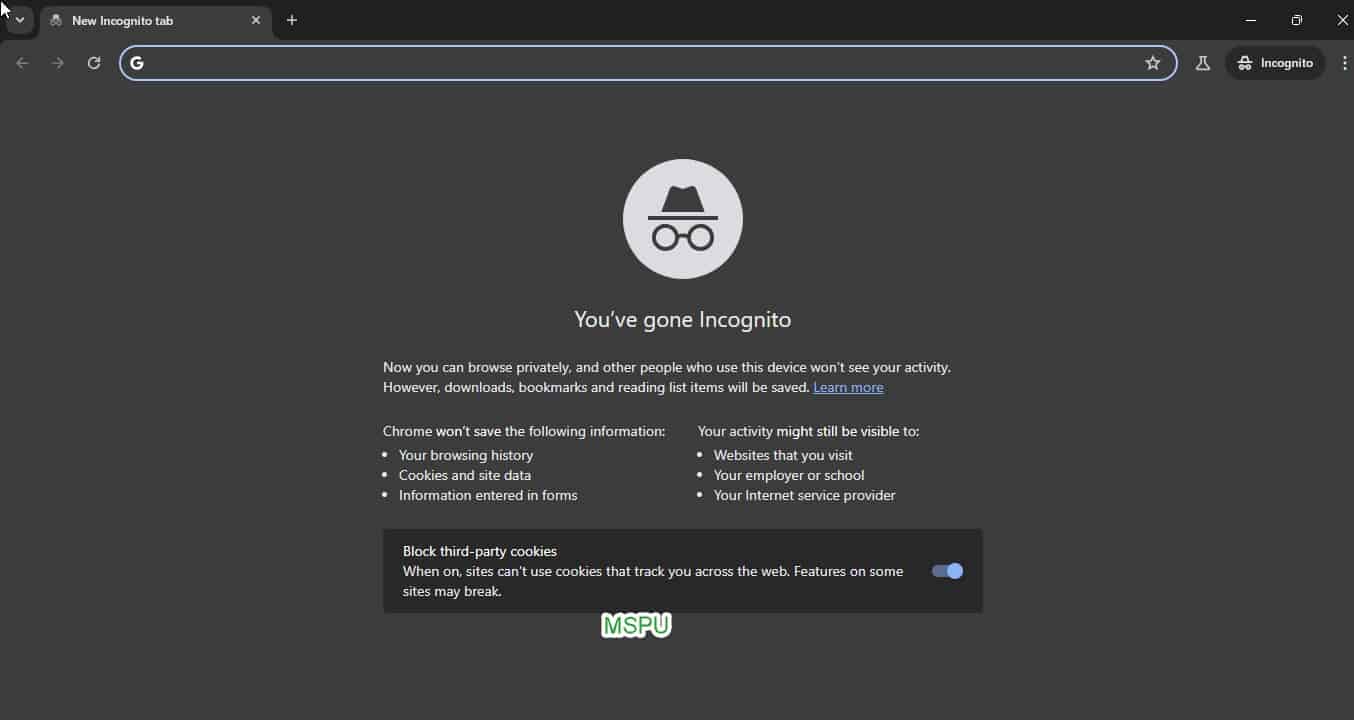Google updates Chrome Incognito disclaimer amid $5 billion lawsuit settlement
2 min. read
Updated on
Read our disclosure page to find out how can you help MSPoweruser sustain the editorial team Read more

As Google agreed to pay $5 billion for settlement over tracking users’ activity in Chrome Incognito mode, the company is updating the Incognito mode disclaimer to reflect its data collection practices (which were not mentioned until now and that got it into trouble). The updated Incognito pages are live in the Canary version of Chrome on Android, Windows, and other platforms, we spotted.
Here is what happened:
Back in 2020, Google was hit with a class action lawsuit seeking $5 billion for collecting user data through its services in Incognito Mode. Google defended against the claims and stated that they mention websites do collect data in Incognito, which doesn’t appear in the disclaimer itself.
Chrome Incognito Mode’s new Disclaimers go live in Canary
The company has redesigned the Incognito mode pages to state the same, but that hasn’t helped. Google has agreed to settle the $5 billion lawsuit, which may happen in February. Before that, the search engine giant now quietly wanted to be transparent about data collection practices by websites and Google itself in Incognito mode, guess what? They’ve reworded the disclaimer from below to new and everything remaining except the first paragraph, stayed the same.

Chrome’s present incognito mode says this:
Now you can browse privately, and other people who use this device won’t see your activity. However, downloads, bookmarks and reading list items will be saved
New Incongito mode disclaimer in Canary states the below:
Others who use this device won’t see your activity, so you can browse more privately. This won’t change how data is collected by websites you visit and the services they use, including Google. Downloads, bookmarks and reading list items will be saved

The new disclaimers can be seen in Chrome Canary on Android, Windows, and other platforms when you open a new incognito tab/window.
While Google may be doing this while facing a lawsuit, users should note that Incognito mode is not anonymous mode. Websites, including Google, that you visit can collect data and track you. Third-party cookie tracking prevention enabled by default in Incognito may help keep your activity safe to a certain extent.
What do you think of Chrome’s new Incognito Mode disclaimer? Let us know your thoughts in the comments below









User forum
0 messages